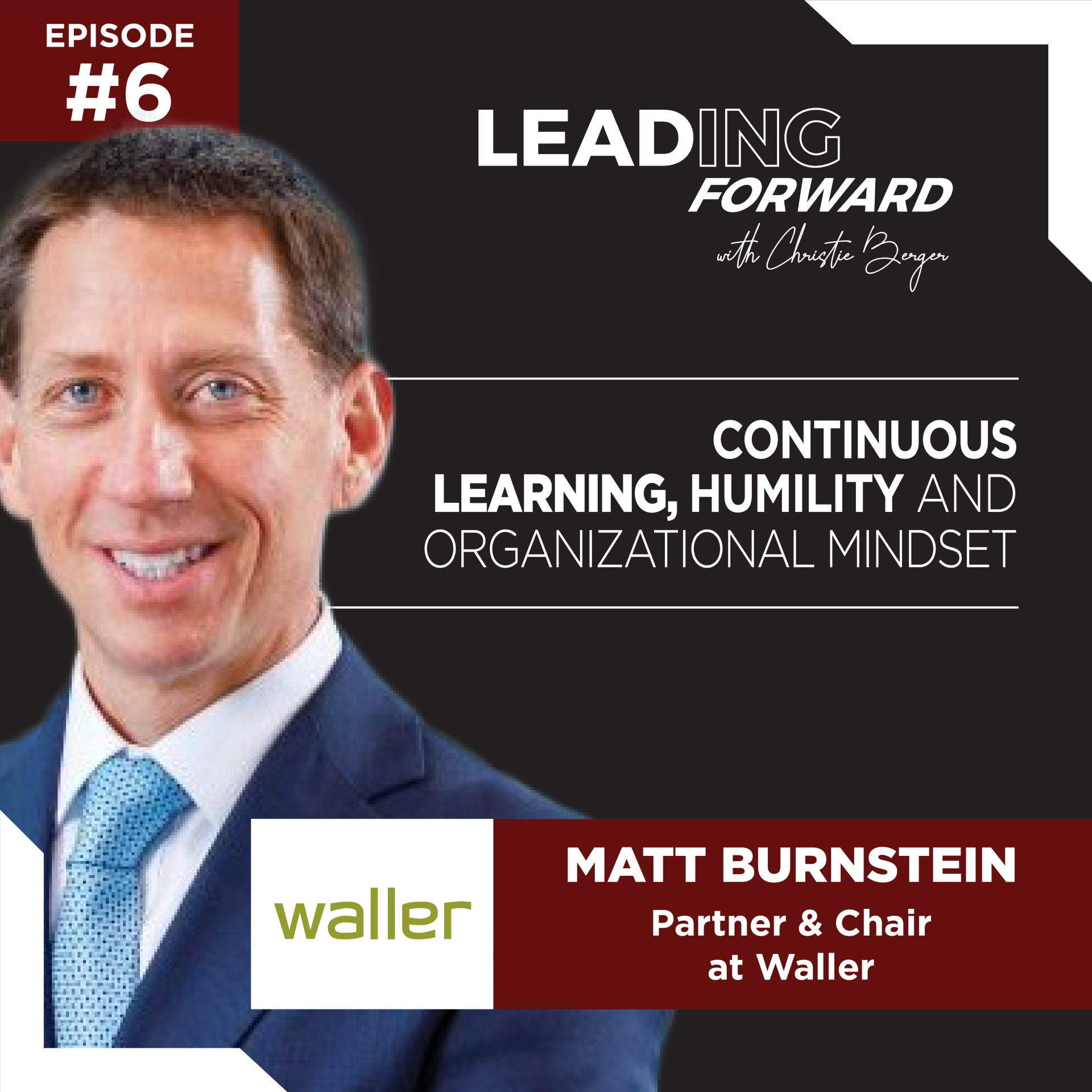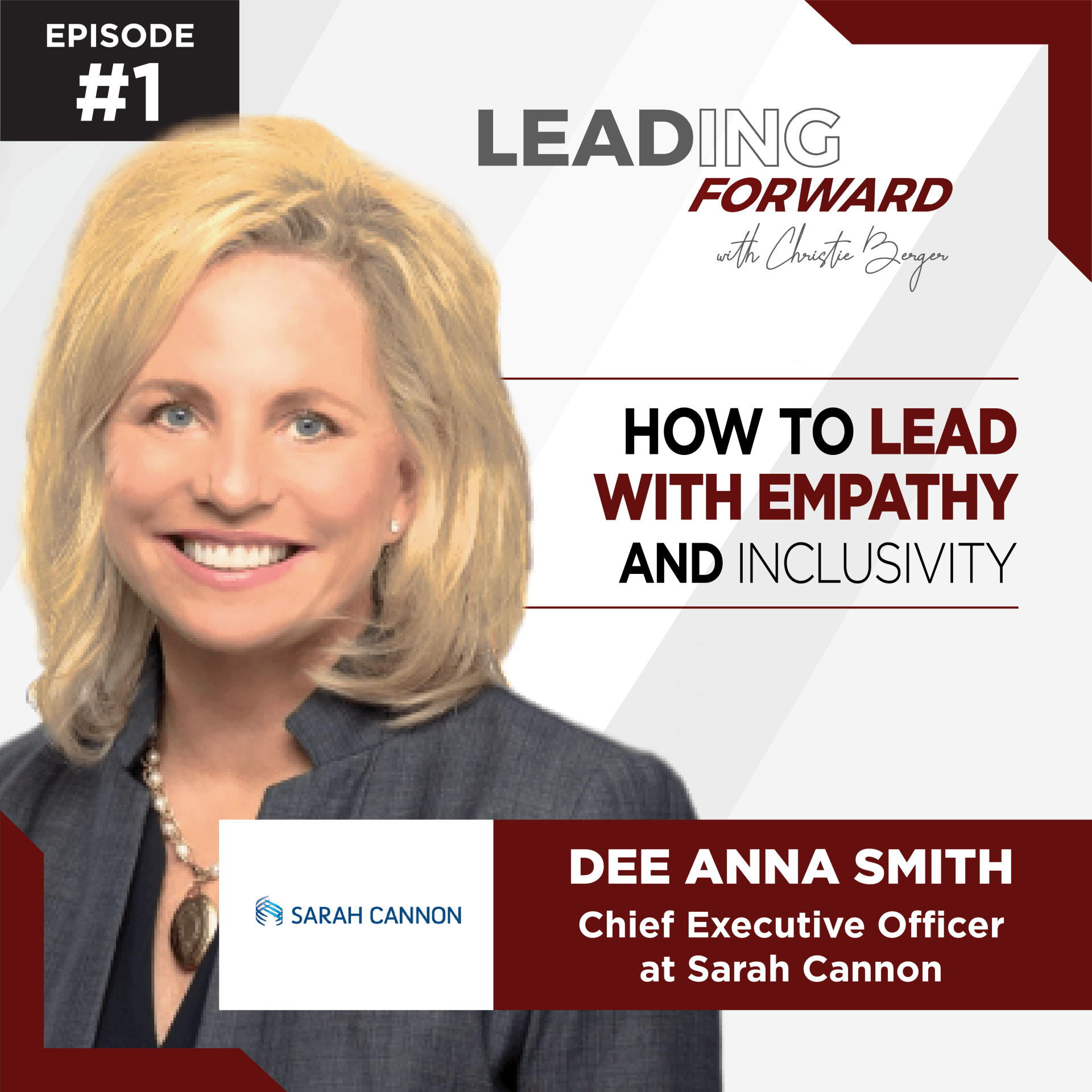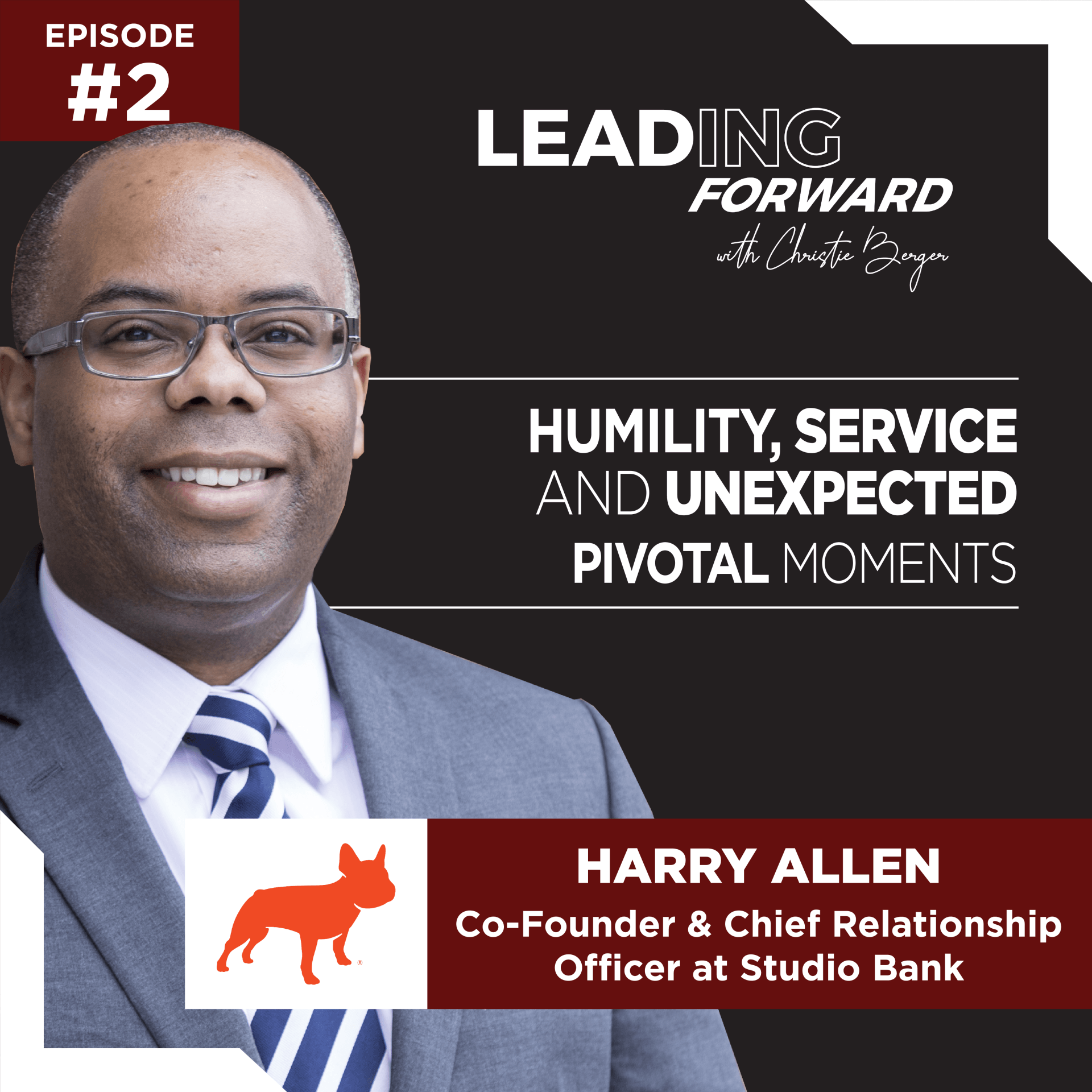EPISODE #6: MATT BURNSTEIN, PARTNER & CHAIR, WALLER - CONTINUOUS LEARNING, HUMILITY AND ORGANIZATIONAL MINDSET
Matt Burnstein has served as chair of Waller Lansden Dortch & Davis, LLP since 2014. In this role, Matt focuses on driving the firm's growth, vision, and strategic planning. Waller has grown to more than 275 attorneys in five offices and earned numerous workplace, civic and diversity awards under his leadership. Matt’s legal practice focuses on transactional matters involving healthcare companies, private equity, and venture capital funds. He also works with emerging companies and investors across a range of sectors. Matt has been recognized by Chambers USA, Best Lawyers, and other publications for his experience leading corporate and commercial transactions. Matt earned his J.D. from Vanderbilt University Law School where he graduated Order of the Coif. He earned his B.A., magna cum laude, from Vanderbilt University.
Connect with Matt Burnstein on Linkedin.
Leading Forward with Christie Berger
Highlights: "Continuous Learning, Humility and Organizational Mindset"
- “Bigger is better” and “Profitability and Success” are not truly the most important goals for an organization.
- The only asset a law firm has is its talent.
- There are two main points to keep in mind with talent acquisition: retaining the talent when you have it and bring the right talent in.
- Matt’s job is to make sure that people want to spend their time at Waller because without that, nothing else matters.
- Leadership begins with self-recognition, humility and a genuine love of the organization.
- Being able to learn from the mistakes you make and to learn from the patterns is important.
- The best leaders realize they are always learning.
- It is up to the leader to have a “pro-firm” approach before they can ask their employees to do so.
- “Urgent” and pressing matters of the organization requires putting on the breaks and pushing the organization to move toward the “not urgent but important” long term things.
- “Reading the room” and
perspective
checking to see if what you’re “reading” is important.
NEVER MISS AN UPDATE
Sign Up for Monthly Episodes and Insights








